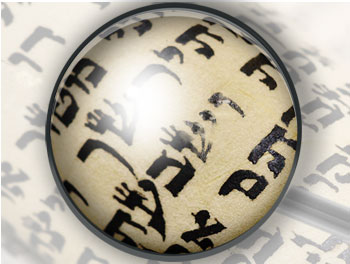Or “How I Spent My February Break”.
This past week marked my third required reading of Rabbi Abraham Joshua Heschel’s The Sabbath as part of my third seminary experience. As much of a north star as this book has been for my twinned personal and professional Jewish journeys, I am struck by how different and how similar my responses have been from those different waypoints. My first reading – as a single person studying for his first set of graduate degrees at the University of Judaism – along with other books, helped inspire me to take on a maximal Shabbat observance as it provided me, at that time, with what felt like a rational and modern justification for an otherwise irrational set of behaviors. My second reading – as a married man with a pregnant wife studying for his doctorate at the Jewish Theological Seminary – provided us with inspiration and courage for making Shabbat the center of our not-yet-family with hope for what it would mean for us and our not-yet-children. This third reading – as a nearly half-century-old man with teenage daughters studying to be a rabbi at the Academy for Jewish Religion – reaches me at a point in my life where the trickle of sand through the hourglass feels more like an avalanche and the desire to experience time as infinite is palpably more painful. Shabbat as a “palace in time” in my twenties was a brilliant metaphor; in my thirties and forties it has been a family fortress; as I prepare to enter my fifties, I yearn to make it real.
Heschel’s “Shabbat” is decidedly non-Kabbalistic, but that doesn’t make it rational, however I may have read it in my twenties. What jumped out at me during this reading of The Sabbath is that I would describe his view of Shabbat as “mythical” – his “palace in time” is not a metaphor advocating better work-life balance (to use a more modern valance), but an actual experience of transcendence. For Heschel, the value of Shabbat is that it is not the other six days of the week – the goal is not to extend Shabbat’s transcendence into the week or even to devalue the this-worldly occupation of the work week. Shabbat provides us with a taste of the “World to Come” so that this life has added meaning. Eastern philosophy wants us to use the tool of mindfulness to transcend the world through detachment; Judaism wants us to use the tool of Shabbat to experience God in this world through attachment – that’s where the imagery of weddings and couples bleed into reality and fuel transcendence.
In my first two readings of The Sabbath, I was more interested in what Shabbat wasn’t than what it was. The “palace in time” was more about what I was keeping outside than what I could be experiencing inside. Shabbat was an oasis of rest, of joy, and of family, precisely because that is not how the rest of the week was experienced. This reading, perhaps influenced by my other rabbinic studies or by my own midlife ruminations, leaves me more interested in living beyond time than within it. My understanding of the metaphor is such that it is halakhah which provides the frame and the construction – one can only build a palace in time through normative Jewish behaviors – and as I was coming to these behaviors in adulthood, I was much more interested in building the palace than dwelling in it. As my children were born and have since transitioned into adolescence, my emphasis has shifted to dwelling in it, but more like a cottage or vacation home than a vehicle for God’s holiness (although there has always been a holiness in sacred family time), in that the reason for weekly visitation is at least as much, if not more, the opportunity it presents for togetherness, rather than transcendence. Now, as the waystation of empty-nested-ness is within reach, I am forced to wonder who will dwell in this palace in the end?
On Friday evenings, sits a palace in time. The famous piyut (poem) Lekhah Dodi is the midpoint of that palace’s drawbridge between Kabbalat Shabbat and Shabbat Maariv – coming literally after six psalms representing the six days who are not Shabbat and (just about) the beginning of the evening service. It is the liminal moment when Shabbat transcendence becomes available – if the palace had a registration desk and a check-in time, they would both be Lekhah Dodi. My hope is that the straight line of my temporal life continues to intersect with the sacred circle of weekly time each and every Shabbat, and that Lekhah Dodi serves as both entrance and exit. And that if I am lucky, in addition to family and friends, meaning and mindfulness, peacefulness and rest; that my palace in time not only be visited by divinity, but that I be capable of recognizing and experiencing it – in my time, in this world.
Ken y’hi ratzon. Let it be so…

Please know that as the situation continues to unfold in the Ukraine that we are, in grade-appropriate ways, providing our students with both information and opportunities for thinking about how we can respond. Teachers have been provided with resources, including Jewish prayers for peace, and we are having conversations about a larger school response.


Beautiful and meaningful post Jon. Thank you. And if possible, I would like to borrow the book to read.
Just let me know! I can bring it to shul tomorrow or whenever. Reach out to me privately…